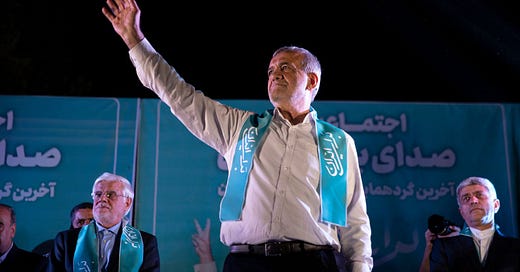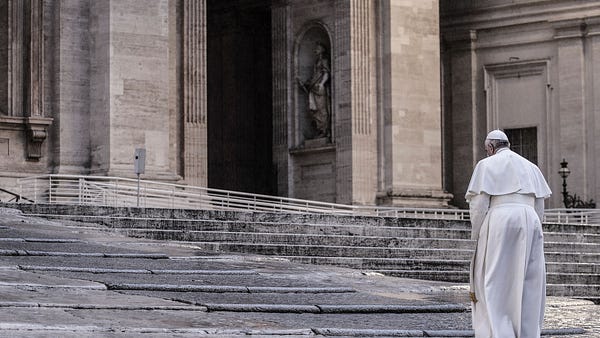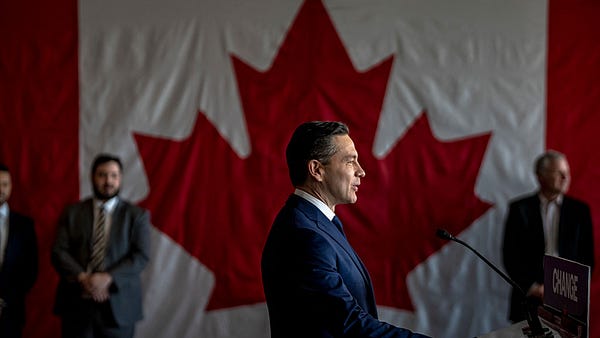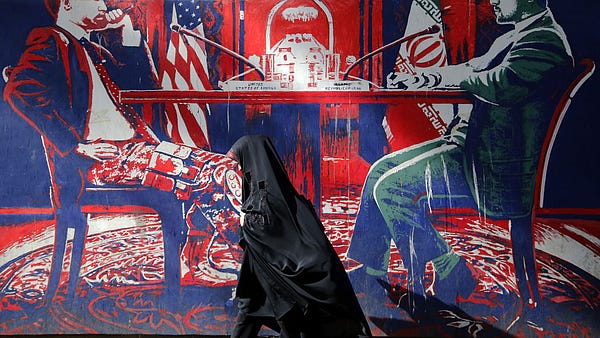
The Free Press

If you saw the headlines in the Western press about Iran’s election over the weekend, you might have thought it had yielded a miracle: the country’s new president, Masoud Pezeshkian, is a “reformer.”
Spoiler alert. He is not. But it’s worth examining why so many media outlets, including The New York Times and NPR, have leapt at the chance to declare Pezeshkian a liberal.
On the campaign trail, Pezeshkian was critical of the morality police who enforce the regime’s policy requiring all women to cover their hair. The 69-year-old heart surgeon, who has served as health minister in Iran’s parliament, also expressed a desire to revive the 2015 nuclear deal between Iran, America, China, Russia, the United Kingdom, France, and Germany.
But these campaign promises mean nothing when you consider Iran’s president has little if any power inside the Islamic Republic. That belongs to the country’s ailing Supreme Leader, Ayatollah Ali Khamenei, and his Revolutionary Guard Corps, which directs proxy wars in the Middle East and has acquired banks, real estate, and businesses inside its own nation.
“He is a garden-variety regime guy,” Mariam Memarsadeghi, the founder and director of the Cyrus Forum for Iran’s Future and a longtime Iranian democratic activist, told The Free Press. “There is nothing about his past to suggest that he is interested in anything other than complete subservience to the Supreme Leader.”
Pezeshkian has spent most of his life in politics as a back bencher inside Iran’s parliament. In 1994, he lost his wife and son in a deadly car crash. He did not remarry and raised his daughters as a single dad, a rarity inside Iran.
One sign of Pezeshkian’s subservience is how he describes his own political ideology. He says he is a “reformist principlist,” which refers to the principles of the 1979 Islamic revolution that give the Supreme Leader and a guardian council power to overturn initiatives from the legislature if they do not cohere with Islamic law.
In short, Pezeshkian has pledged loyalty to a Supreme Leader who has cracked down against demonstrators and consolidated power among Iran’s unelected Revolutionary Guard Corps.
“Pezeshkian is a safe bet for Khamenei,” Alireza Nader, a former Iran analyst with the RAND Corporation, a private think tank that works closely with the U.S. military and intelligence agencies, told The Free Press. “He’s totally loyal to him and the Revolutionary Guards. He’s stated that he has no separate agenda from Khamenei and will pursue the regime’s policies, for example, fully supporting Hezbollah.”
Ruel Marc Gerecht, a senior fellow at the Foundation for Defense of Democracies, told The Free Press that Pezeshkian proved his loyalty to Khamenei in the aftermath of the death of Mahsa Amini, a Kurdish Iranian woman who was killed while being detained by the regime’s morality police for not wearing a mandated head covering. While Pezeshkian criticized the arrest, he also denounced the protests that followed Amini’s death. “This situation only benefits the hypocrites and enemies of the Iranian people, who seek to sow turmoil and unrest and widen the gap between the people and the government,” he said in 2022.
“He stood with the Supreme Leader when it really mattered,” Gerecht said.
The truth is that Iran’s reform movement has been dead for more than 20 years. It enjoyed a brief moment of influence in 1997 when Mohammad Khatami won the presidency with 69 percent of the vote. Khatami promised a series of real reforms in Iran, ranging from allowing newspapers to be critical of the regime and supporting a “dialogue of civilizations”—an ambitious diplomatic gambit meant to engage the West.
Khatami, though, was never allowed to implement the reforms he promised in his campaign. On July 9, 1999, Khatami was unable to stop the regime’s gunmen from entering Tehran University and beating and disappearing student activists who were a core part of his voting base. After the 1999 crackdown, the reformists themselves were targeted. By the end of his second term in 2005, Khatami largely retired from public life as the regime continued to go after his political allies. The 80-year-old remains in Iran but has lost the influence he once had.
Iranians have learned the hard way that reform is not possible so long as the country’s unelected Supreme Leader remains in power. Given that only 50 percent—at most—of Iran’s eligible voters turned out for this month’s election, it’s doubtful they will trust a new “reformist” president who pledges his fidelity to their tyrant.
Eli Lake is a Free Press columnist and host of The Re-Education podcast. Follow him on X (formerly Twitter) @EliLake. Read his last Free Press piece, “American Troops Know: Iran Is Already at War with Us.”
And become a Free Press subscriber today:














Not sure why western media even pays attention to the Iranian election. One doesn't need to be an expert in Iranian politics to understand the King of England is more powerful than the Iranian president.
Eli Lake is right: Masoud Pezeshkian, the newly elected “reformist“ president of Iran, is NOT a good guy. Allow me to elaborate. The Iranian people are an anomaly in the Middle East. The vast majority of their population is not Arab nor do they speak Arabic. They share a common religion with their neighbors because of the Muslim conquest of Persia in the 7th century. Prior to the 1979 Revolution, $1 USD equaled 70 Iranian Rials. Today the conversion rate is $1 USD to around 42,000 RIs. Iran was considered to be a cultured, educated and wealthy (from an oil reserve perspective) nation. And to top it off, Iranian people are absolutely lovely. So what happened? Islamism.
Islamism advocates for the restoration of a pan-Islamic Caliphate which aims to religiously and politically unite the Muslim world. We are talking full on Sharia lockdown, condemning (and much worse) anything LGBTQ+ and preaching global jihad (not the spiritual kind). In other words, their current vision for the future is firmly rooted in a violent and medieval philosophy that should have drifted away like a very bad smell a long, long time ago. Why is it still so popular? Because it’s such a delicious recipe for authoritarian regimes controlled by thugs. (That’s EVERY Arab nation in the world today.) Thugocracy is not limited to the Arabs but the mechanics of the system are universal: a charming ruler with absolute power, no free press, suppression (by all means necessary) of any dissent and a sophisticated misinformation campaign to control the hapless citizens. “We’re not the problem,” say the clever tyrants, “It’s the ____,” fill in the blank. I’ll give you a hint: the first letter very often begins with a “J”.
What’s really going on? Currently, there’s an unbridgeable socioeconomic gap between the ironically “Western flavored” elites and the commoners in all Arab countries. It’s reminiscent of the disconnect that historically existed between the poor, working fellaheen and their wealthy, Arab landowner rulers—a pernicious caste like system that still exists. Iranian Islamists culturally appropriated not only the neighboring al-Islamiyyun conspiracy theories but the Thugocracy scaffold necessary to support them. Masoud Pezeshkian is merely another cog in the awful Iranian Islamist machinery with the power to change nothing.